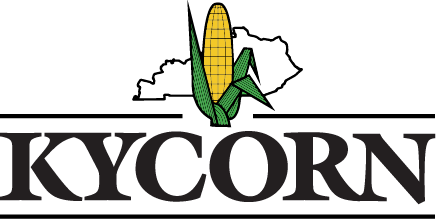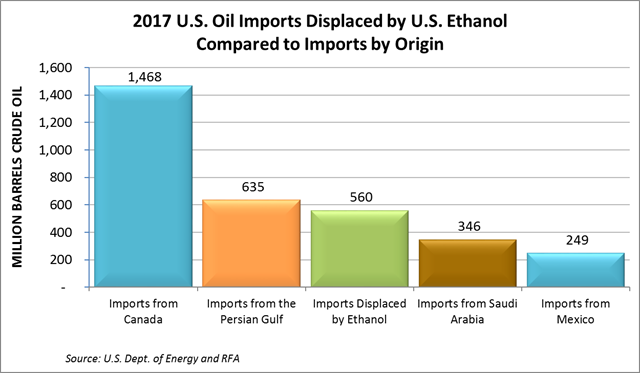Renewable Fuels Association Report
Last year, a 5% increase in domestic oil production coupled with record ethanol output helped stall the recent trend of rising oil imports. According to EIA, gross U.S. crude oil imports declined by 0.08% to 3.68 billion barrels in 2017. Imports from Canada were up 6.1%—the seventh consecutive year of increasing imports from our neighbors to the north—making it the largest source of U.S. oil imports in 2017 (representing 40% of all imports). OPEC supplied one-third of U.S. imports, down from 40% in 2016 despite large increases in oil from Iraq and Nigeria. Fortunately, ethanol continues to expand domestic supplies and reduce reliance on petroleum imports. Net petroleum dependence was 20% in 2017, but would have been 27% without the addition of 15.8 billion gallons of ethanol added to the fuel supply. Looked at another way, 2017 American ethanol production displaced an amount of gasoline refined from 560 million barrels of crude oil.


